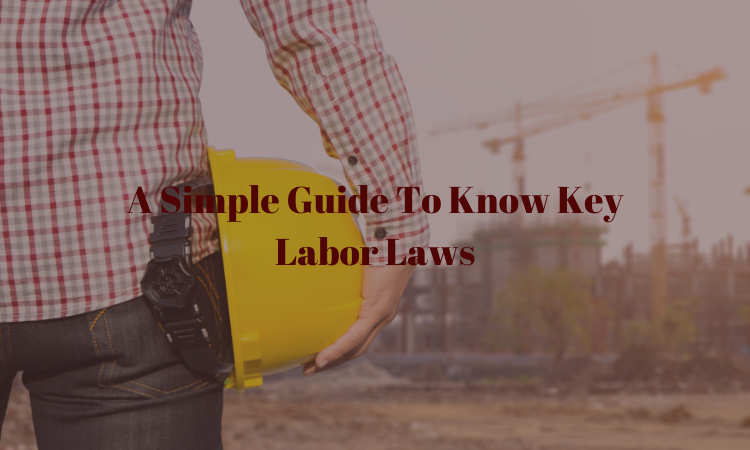Any organization in the United States that is involved in employing people has to adhere to laws that are administered by the Department of Labor. These regulations have been formulated to protect the interests of the workforce that are actually pushing the wheels of industrial development. It is essential for businesses as well as employees to know about the key labor laws. Workers must be aware of the regulations that affect their vocation and entitle them to certain rights. Most people come to know about these benefits only when they talk to labor law lawyers. Being aware of the federal regulations will only help them in discharging their duties and securing their rights in a better manner. Let’s take a look at some of the important labor laws in the country.
1. Wages & Hours
The Fair Labor Standards Act defines the standards for minimum pay along with overtime wages that employees must receive. It also specifies the standards for recordkeeping and youth employment. The law applies to workers in the private sector as well as those employed in the federal, state and local governments. It directs employers to pay the minimum wage specified under the act to all covered individuals who are not exempt. Any covered non-exempt person who works for more than 40 hours in a week must receive overtime pay at a rate that must not be less than one and one-half times the regular rate at which the individual is being paid. The law bans the employment of individuals under the age of 18 in certain occupations. It also limits the hours for which an individual under the age of 16 can work.
2. Employee Benefit Security
There are organizations that offer pension or welfare benefit plans to their employees. These schemes help workers in saving money that can be used for living a hassle-free retired life. The Employee Retirement Income Security Act (ERISA) is used for governing employers who offer such benefits. The law requires the employing organizations to provide the full details of a benefits scheme to the workers. There are numerous standards that businesses have to keep in mind for fulfilling disclosure and reporting requirements related to the plans.
3. Workplace Safety & Health
One of the key labor laws that all workers must know about is the Occupational Safety and Health Act (OSHA). The main objective of this act is to provide workers with a security cover against the hazards and risks that they face as part of their job. OSHA specifies that all employers must clearly define and document workplace safety and health policy. They must lay down procedures for dealing with hazards at their workplace. It is the duty of the employer to provide their staff with a clean and safe environment for working. Workplace safety is a serious issue and it is one of the main objectives of unions to ensure a secure working environment for their members. For instance, the 1097 laborers union states on its website that it is working to promote job safety as guaranteed under the Act.
Also Read: Family Immigration Lawyer
4. Workers’ Compensation
All employees must know about the workers’ compensation program in their jurisdiction. Every state requires the organizations involved in hiring workers to provide compensation and other associated benefits to staff members who are injured while discharging their duties. Workers’ compensation can be used to settle bills for medical treatment including any procedure that was deemed necessary by a medical practitioner. There are different laws that extend that benefit to workers in specific industries. For instance, the Longshore and Harbor Workers’ Compensation Act (LHWCA) ensures compensation to certain maritime workers. The Federal Employees’ Compensation Act (FECA) directs the payment of compensation to a federal employee who was hurt or killed while performing his/ her duties.
5. Relationship Between Unions And Their Members
Unions are a vital component of the entire employment ecosystem of the country. There are various unions that are created for the protection of workers’ interests’ in different trades and industries. The Labor-Management Reporting and Disclosure Act (LMRDA) is used for governing the relationship between unions and their members. It lays down the rights of union members. It establishes the reporting requirements that unions have to fulfill. The law ensures that unions are run democratically and sets standards for the election of union officers. It is the duty of unions to inform their members about LMRDA provisions. For instance, if you are a member of the laborers local 1091 union in Duluth, MN, then you can ask the office-bearers about the bill of rights.
Conclusion
Apart from these key labor laws, there are various other regulations that protect workers’ interests. There are various laws that protect a specific class of workers. For instance, the Migrant and Seasonal Agricultural Worker Protection Act (MSPA) governs how agricultural and farm workers must be hired. You must approach your union or a labor law consultant to get complete information about the laws that affect your occupation.


























